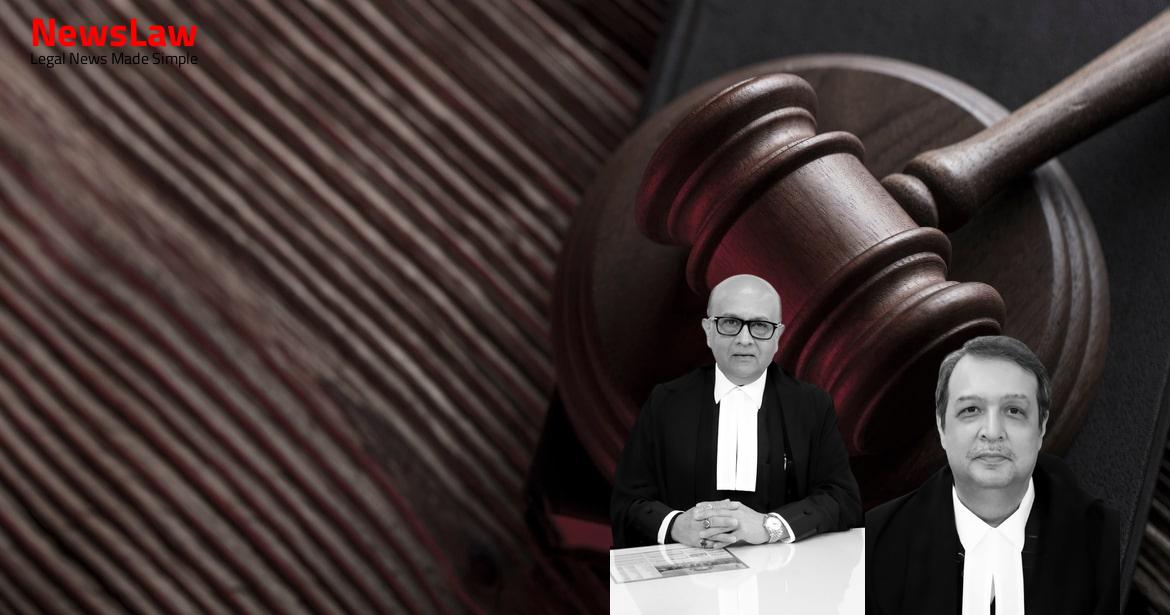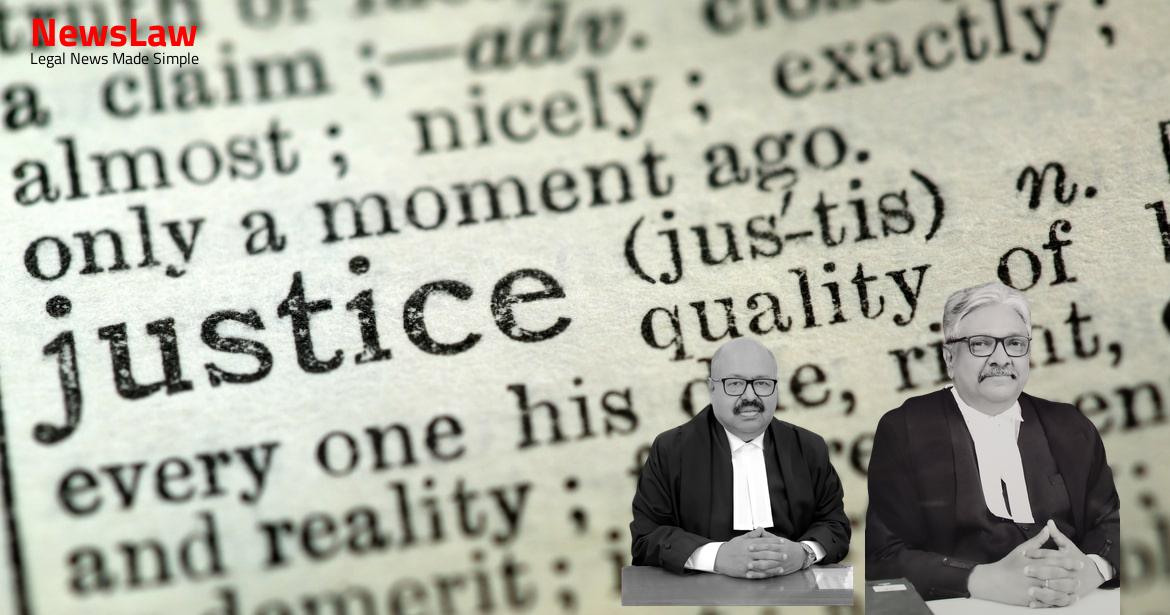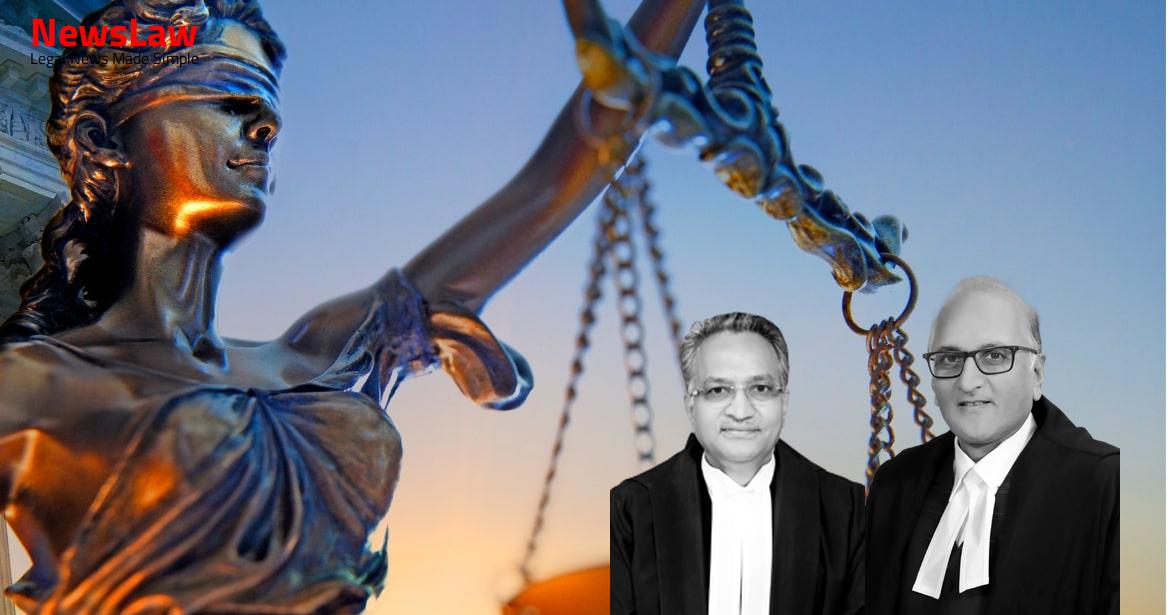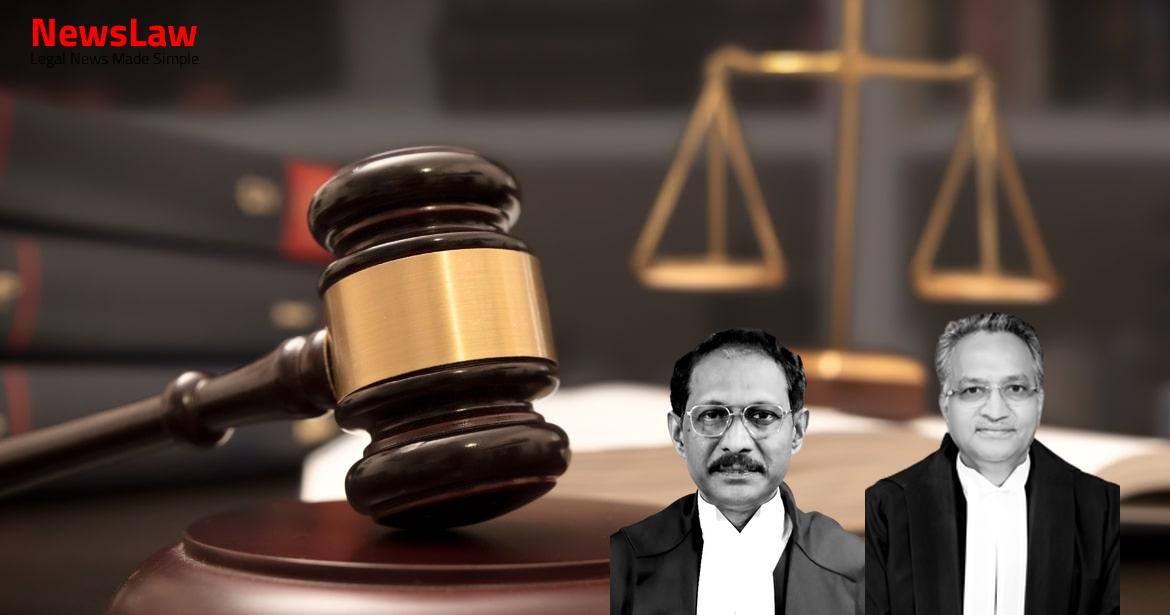In a significant legal battle, the Supreme Court of India delved into the case of a Head Constable versus the CRPF regarding the validity of Rule 27 under the CRPF Act for compulsory retirement. The respondent, a CRPF official, challenged his compulsory retirement following charges of assaulting and abusing a colleague. The decision sheds light on the interpretation of statutes and rules governing disciplinary actions within the armed forces.
Facts
- The respondent, a Head Constable in CRPF, was charge-sheeted for assaulting and abusing a colleague.
- Charges were found proved in the enquiry, leading to his compulsory retirement.
- The respondent’s departmental appeal against the retirement was dismissed.
- A writ petition was filed challenging the retirement order.
- The Single Judge allowed the writ petition stating that compulsory retirement was not a specified punishment under the CRPF Act.
- The Division Bench affirmed the Single Judge’s decision, upholding the justification for compulsory retirement.
- Compulsory retirement was deemed justified under Section 11 of the CRPF Act read with Rule 27 of the CRPF Rules.
Also Read: DAMEPL vs. DMRC: Curative Petition and Arbitral Award Restoration
Issue
- The issues for consideration in this appeal are: (i) Whether compulsory retirement from service could have been imposed based on Rule 27 of the CRPF Rules, (ii) Whether Rule 27 of the CRPF Rules, allowing punishments beyond those in Section 11 of the CRPF Act, is ultra vires and void, (iii) Whether the punishment of compulsory retirement is procedurally sound and proportionate to the misconduct.
Also Read: Environmental Violations Case: TNPCB v. Copper Slag Unit
Arguments
- (i) The original petitioner’s main ground was that compulsory retirement is not a valid punishment under Section 11 of the CRPF Act, a claim found to be misconceived.
- (ii) The High Court failed to consider that Section 11 of the CRPF Act is subject to rules made under the Act, including Rule 27 of the CRPF Rules, 1955 which specifically lists compulsory retirement as a punishment for non-gazetted officers like the respondent.
- Section 11’s use of the term ‘removal’ is broad, encompassing any punishment leading to service termination, including compulsory retirement, which is considered a form of removal under the CRPF Rules.
- The punishment of compulsory retirement, being one of the punishments allowed and falling under ‘removal’ in the CRPF Rules, was within the permissible outcomes following an inquiry where charges of gross indiscipline were proven against a member of a disciplined force.
- Hawaldar M. Devnath, allegedly assaulted by the original petitioner, had animosity towards the petitioner.
- Punishment not specified in the statute cannot be considered a false complaint; it cannot be introduced through a rule without specific delegation of power.
- Rule 27 of the CRPF Rules, specifying compulsory retirement as a punishment, is deemed ultra vires the provisions of Section 11 of the CRPF Act.
- The decision in Ghulam Mohd. Bhat case is not applicable as it pertains to removal from service, not compulsory retirement.
- Rule 27 was framed under delegated power from Section 18 of the CRPF Act solely for regulating minor punishments, not introducing new types of punishments.
- Dismissal and compulsory retirement are distinct forms of punishment and cannot be used interchangeably.
Also Read: High Court Upholds Decision on Minimum Eligibility Cut-Off in Judicial Promotions Case
Analysis
- The CRPF Act gives the Central Government superintendence and control over the Force.
- Punishments in service must be specified in the contract or the governing law.
- The Disciplinary Authority needs to reconsider the matter taking into account all raised grounds.
- The position of the petitioner should be restored before the final order is passed.
- Interference by the court with previous orders depends on the fresh disposal of proceedings by the Disciplinary Authority.
- The appellants appealed the Single Judge’s order stating charges against the petitioner were proved in the enquiry.
- An overview of CRPF Act provisions and rules is necessary before addressing issues.
- Rule-making power of the Central Government under CRPF Act is broadly defined.
- Rule 27 introducing compulsory retirement as a punishment is deemed ultra vires the CRPF Act.
- The original petitioner’s charge was not proven due to lack of eyewitnesses.
- The Central Government has the power to make rules for carrying out the purposes of the CRPF Act and its administration.
- Compulsory retirement as a punishment is deemed intra vires the CRPF Act.
- The CRPF Act provides for the constitution and regulation of the armed Central Reserve Police Force.
- Rule 27 of the CRPF Rules details the procedure for awarding punishments.
- Section 11 of the CRPF Act empowers the Commandant or any other competent authority to award punishments in lieu of or in addition to suspension or dismissal.
- Central Government has the power to make rules under Section 18 for carrying out the purposes of the Act.
- Compulsory retirement is considered a lesser penalty than dismissal or removal from service in the Force.
- Rules under the Act can specify punishments for disobedience, neglect of duty, or other misconduct by members of the Force.
- The punishments for more heinous offenses include transportation for life or imprisonment for a term of not less than seven years.
- For less heinous offenses, the punishment can be imprisonment for up to one year or a fine.
- There are specific rules in place, such as Rule 27, that outline the punishments and the competent authority to impose them.
- Rules may provide for regulating minor punishments under Section 11 and appeals or revisions of orders under that section.
Case Title: UNION OF INDIA Vs. SANTOSH KUMAR TIWARI (2024 INSC 392)
Case Number: C.A. No.-006135-006135 – 2024



